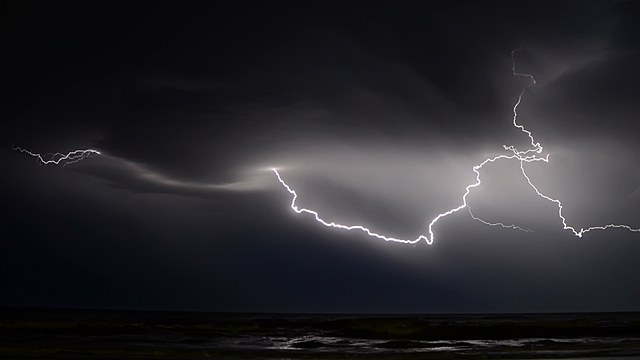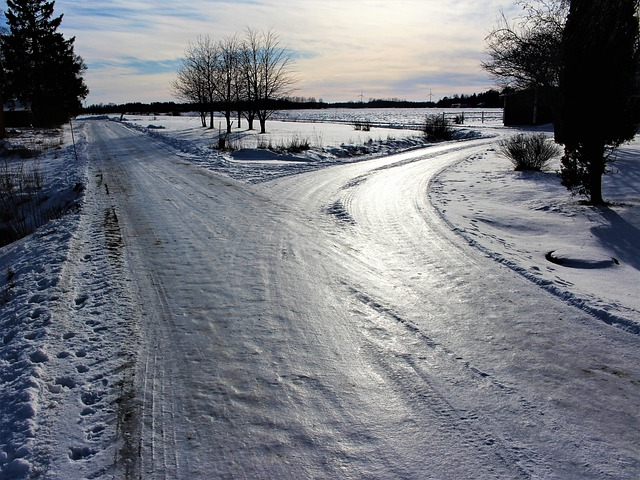Are you an RV enthusiast, planning your next adventure? It’s essential to consider the impact of weather conditions on your journey. “What role do weather conditions play in RV accidents?” is a crucial question to ask, as RV accidents can be exacerbated by adverse weather, which not only puts you and your loved ones at risk but also your precious vehicle. In this blog post, you’ll discover how different weather conditions contribute to RV accidents, tips for safe driving, the influence of RV size and weight, and legal aspects to consider. Stay informed and keep safety a top priority as you hit the road.
Key Takeaways
- Adverse weather conditions can significantly increase the risk of RV accidents, so it is important to understand and adjust driving techniques accordingly.
- Proper planning and preparation for an RV journey are essential, including researching weather forecasts, planning routes and ensuring maintenance & equipment.
- Knowing when to stop in hazardous conditions is key for safe travel & legal considerations should be taken into account if involved in an accident due to bad weather.
Weather-Related Factors in RV Accidents

Weather conditions significantly influence RV accidents, necessitating drivers to comprehend the associated risks. The most common weather conditions that increase the risk of RV accidents include:
- Rain
- Snow
- Ice
- Fog
- High winds
In fact, from 1994 to 2012, there has been a downward trend in the proportion of total fatalities associated with adverse weather and weather-related fatalities. Recognizing the dangers posed by these hazardous weather conditions, including weather related crashes, can help you be better prepared and make informed decisions while on the road.
Rain and Wet Pavement
Rain and wet pavement are significant contributors to weather-related accidents, with 75% of vehicle crashes attributed to weather conditions taking place on wet pavement and 47% occurring during rainfall. Weather events impact roads, making driving an RV in the rain risky due to reduced visibility, hydroplaning, and loss of traction.
The risks associated with hydroplaning and loss of traction are not to be taken lightly. When driving an RV, these factors can reduce visibility and make it difficult to maintain control of the vehicle, leading to an increased risk of accidents. Furthermore, heavy rain can lead to slippery roads, adding another layer of danger for RV drivers.
Altering your driving techniques during rainy or wet conditions is a key step to mitigate these risks. This includes:
- reducing speed
- increasing the following distance between your RV and the vehicle in front of you
- using your headlights and windshield wipers to improve visibility.
Snow and Ice
RV drivers encounter a distinct set of challenges due to snow and ice. Visibility may be impaired, the road surface may be slippery, and maneuverability may be hindered when driving an RV in snow and sleet. Approximately 24% of all weather-related car crashes occur on slushy, icy, or snowy roads, and it is estimated that over 1,300 Americans are injured in vehicle crashes on snowy, slushy, or icy pavement annually.
The impact of snow and ice on the braking distance of an RV is significant. Reduced traction between the tires and the road surface increases the braking distance, similar to how insulin resistance affects the body’s ability to process glucose. As a result, RV drivers must exercise extreme caution when navigating snowy and icy roads.
Beyond modifying driving techniques, preparing for snow and ice-related challenges is also pivotal. This may include carrying chains, a snow shovel, and other winter driving essentials in case of emergencies.
Foggy Conditions
Foggy conditions can drastically reduce visibility, making it challenging to see other vehicles, road signs, and potential hazards. The most frequent accidents that occur when driving an RV in foggy conditions are rear-end collisions and run-off-road crashes.
Fog can have a significant impact on the handling and control of an RV, similar to how body mass index (BMI) can impact a person’s overall health. Hence, employing headlights and moderating speed are vital to ensure safety during foggy conditions.
Being cautious and prepared is indispensable during foggy conditions. Here are some tips to follow:
- Ensure your headlights are functioning correctly
- Avoid using high beams, as they can exacerbate the glare from the fog
- Maintain a safe following distance to provide ample reaction time in case of sudden stops or slowdowns
High Winds
High winds can create dangerous driving conditions for RVs. Wind can cause trailer sway and driver over-correction, similar to how cardiovascular risk factors can impact a person’s health. In addition to the risks posed by wind alone, high winds combined with other adverse weather conditions can further increase the likelihood of RV accidents.
Operating an RV in high winds can present a heightened danger due to the following factors:
- Increased likelihood of tipping
- Reduced control
- Impaired visibility
- Crosswinds
- Potential harm to the RV
It is generally recommended to avoid driving an RV in winds that exceed 50 mph, as wind speeds approaching 60 mph can be strong enough to overturn an RV.
Ensuring safety in high winds involves monitoring weather forecasts, planning your route wisely, and demonstrating flexibility in adjusting travel plans as necessary. If caught in high winds while driving, reduce your speed, maintain a firm grip on the steering wheel, and be prepared for sudden gusts.
Tips for Safe RV Driving in Adverse Weather

Safe RV driving in adverse weather conditions requires a combination of planning, preparation, and adjusting driving techniques to minimize the risk of accidents. By following the right practices, you can protect yourself, your passengers, and your vehicle from the dangers posed by inclement weather.
Planning and Preparation
Prior to setting off on your RV journey, checking weather forecasts with reliable tools is of paramount importance. Some recommended tools include:
- AccuWeather
- WeatherBug
- Ventusky
- RV Trip Wizard
- RV weather stations
This information will help you plan routes that take into consideration the size and weight of your RV, the terrain, the weather conditions, and the availability of rest stops and campsites.
In addition to planning your route, ensure the RV is properly maintained and equipped for the journey. This includes checking the tires, brakes, and other mechanical components, as well as ensuring the RV is stocked with necessary supplies.
Adjusting Driving Techniques
Adapting your driving techniques is vital when steering an RV in unfavorable weather conditions. This may include:
- Reducing speed to maintain better control and reduce the risk of hydroplaning
- Increasing the following distance between your RV and the vehicle in front of you to allow for longer braking distances
- Being alert to slippery road surfaces and avoiding sudden maneuvers such as quick acceleration, braking, or sharp turns
In addition to these adjustments, use your headlights and windshield wipers to improve visibility and make yourself more visible to other drivers. Always check and test all your vehicle and trailer lights before driving in adverse weather to ensure they are working properly.
Knowing When to Stop
Recognizing the right time to halt and wait for severe weather conditions to improve is key in averting RV accidents. Heavy rain, snow, or high winds can worsen road conditions, reduce visibility, and raise the risk of accidents. In such situations, it’s essential to exercise caution and consider stopping or delaying travel until conditions improve.
By prioritizing safety and modifying your driving techniques according to the current weather conditions, you can minimize the risk of accidents and enjoy a safe and enjoyable RV adventure.
The Impact of RV Size and Weight on Accident Risk

The stability and maneuverability of an RV, and consequently its susceptibility to accidents during unfavorable weather conditions, are influenced by its size and body weight. The average weight of an RV varies depending on the type and size; however, it is approximately 10,000 pounds. With such a considerable size and potential for weight gain, it’s crucial to understand how these factors affect your vehicle’s performance on the road.
Factors such as height, length, and weight distribution can all contribute to how well an RV handles and maintains stability while driving. Unbalanced weight distribution can increase the risk of accidents, and taller RVs may be more susceptible to wind and crosswind effects, which can affect stability. Hence, taking these factors into account when choosing and operating an RV is integral for ensuring a safe and stable journey.
In addition to understanding the impact of size and weight on RV stability, it’s important to be mindful of how these factors influence the vehicle’s maneuverability. A longer RV will be more challenging to maneuver, particularly when reversing or parking. The weight of the RV also affects its ability to stop and slow down, so driving at a reduced speed is advised for larger and heavier RVs.
Legal Considerations and Insurance Claims
In the unfortunate instance of an RV accident caused by harsh weather conditions, understanding the potential legal repercussions and insurance claims is essential. This includes:
- Documenting the weather conditions at the time of the accident
- Determining if any parties were driving too fast for the weather conditions
- Assessing if there were any road defects or hazards that contributed to the accident
Fault in RV accidents caused by bad weather is typically determined based on negligence. If a driver fails to exercise due care and caution in adverse weather conditions, they may be considered at fault for the accident. However, fault can also be attributed to other factors such as vehicle defects, poor road design, or inadequate maintenance. It is essential to gather evidence and consult with legal professionals to determine liability in these cases.
Insurance plays an important role in covering damages from RV accidents in adverse weather conditions through comprehensive coverage. Comprehensive coverage can provide reimbursement for damages caused by various hazards, including:
- severe weather
- theft
- vandalism
- fires
Understanding your insurance coverage and the claims process is vital to ensuring you receive the appropriate compensation in the event of an accident.
Summary
In conclusion, weather conditions play a significant role in RV accidents, making it crucial for drivers to be informed and prepared. By understanding the risks posed by rain, snow, ice, fog, and high winds, planning your route, maintaining your RV, and adjusting your driving techniques, you can minimize the risk of accidents and enjoy a safe and memorable RV adventure. Remember, safety should always be your top priority when hitting the open road.
Frequently Asked Questions
What are the causes of weather-related accidents?
Poor maintenance of tires and a lack of safety precautions when driving in bad weather are the primary causes of weather-related accidents, with over 5,000 annual fatalities due to wet pavement alone.
In what weather does most collisions occur?
Rainfall and storms are the weather where most car accidents occur, with 70% of them caused by rain. Roads get slippery and visibility is reduced due to pouring rain, so drivers usually drive at lower speed.
What weather event is responsible for the greatest number of deaths among American drivers?
Paragraph 1: Rain causes the greatest number of weather-related accidents and fatalities among American drivers, with 573,784 crashes and 2,732 deaths over the past 10 years. Paragraph 2: Wet pavement is also a significant danger, accounting for 907,831 crashes and 4,488 fatalities.
Which refers to determined the weight status of a person?
Body Mass Index (BMI) is a measure to determine the weight status of a person by calculating the ratio of their weight in kilograms (or pounds) divided by the square of height in meters (or feet). A BMI between 18.5-24.9 is considered healthy, 25-29.9 is considered overweight, and 30 or higher is considered obese.
How can I minimize the risk of hydroplaning while driving my RV in the rain?
To minimize the risk of hydroplaning, reduce your speed, increase the following distance between your RV and the vehicle in front of you, and avoid sudden maneuvers such as quick acceleration, braking, or sharp turns.

